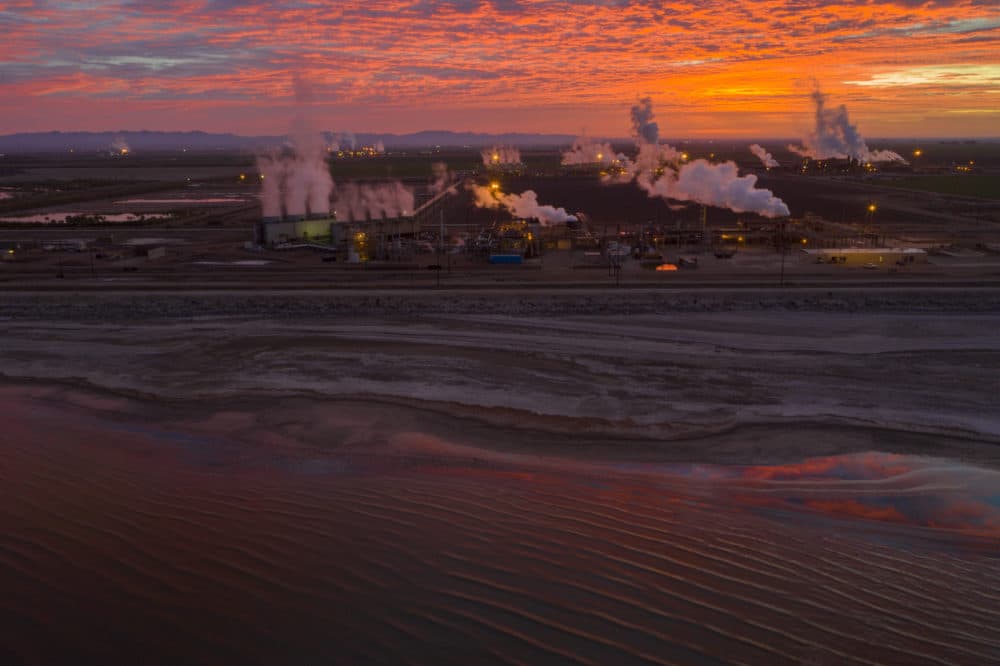Advertisement
Commentary
What voter suppression in places like Texas means for the climate

Your state primary is approaching and you want to be a good voter, so you decide to request a mail ballot. You fill it out — including some new personal identification fields you’ve never seen before — and mail it back weeks before the deadline.
And then your ballot gets rejected. Twice.
This is what happened to singer Willie Nelson and his wife Annie when they tried to vote in Texas’s primary last month. They weren’t alone: Nearly 25,000 mail ballots were rejected in Texas after the state passed a slew of new voting restrictions.
Far worse, this scene could easily be repeated in just about every battleground state this November, with particularly dire consequences for voters who care about climate change.
At least 19 states passed 34 laws restricting voting access last year. New Hampshire and Arizona imposed stricter signature requirements for mail ballots; Florida and Georgia reduced access to ballot drop boxes; and multiple battleground states now have new identification requirements, fewer polling places or reduced early-voting hours.
At least 19 states passed 34 laws restricting voting access last year.
It is abundantly clear that these new voter suppression laws are already disenfranchising voters at alarming rates, and they could have devastating consequences for turnout this fall, particularly within communities of color. Moreover, state legislatures and courts show little appetite for reversing these laws any time soon.
So, what does this have to do with the climate crisis? Put simply, if you want to fight climate change you have to fight voter suppression. Our research at the Environmental Voter Project shows that people who care most about the environment are more likely to be people of color, people who make less than $50,000 a year, and younger voters.
Not coincidentally, these groups are also among those most directly affected by the climate crisis — and by voter suppression. Therefore, when it is harder for historically disenfranchised people to vote, it is harder for environmentalists to vote. And that makes it a lot harder to demand the large-scale policy changes we know are urgently needed if we’re to have any hope of addressing the climate crisis in a meaningful way.
Tragically, as many voters have already experienced, these laws are working exactly as intended: Fewer ballots are getting counted.
Data from the Texas Secretary of State now shows that a stunning 12% of mail ballots were rejected in the Texas primary last month. To put that number into perspective, mail ballot rejection rates were between 0.8 and 1.4% in Texas’s three previous federal general elections. As often happens, this increase in ballot rejections also had a disproportionate impact on Texans of color. A New York Times analysis of the primary showed that predominantly Black neighborhoods in Houston were 44% more likely to have ballots rejected than predominantly white neighborhoods.
That’s the bad news. The good news is that, while we likely can’t change voter suppression laws before the midterms, we can help people navigate new barriers to voting and grow the climate movement’s political power. But we must do it quickly.
We can’t afford to wait until October or November for voters to find out that the way they voted in 2020 won’t work anymore. Instead, we must treat every upcoming primary, local, and special election as a precious opportunity to educate voters on these new laws and to walk them through casting a ballot in an actual election before the midterms arrive.
[W]hen it is harder for historically disenfranchised people to vote, it is harder for environmentalists to vote.
Arizona and Florida have a slew of local elections in April and May followed by state primaries in August; Georgia has a May primary with likely runoff elections in June; and Texas has two more statewide elections coming up just in May alone (ballot questions on May 7, and primary election runoffs on May 24). Civic engagement groups must use these upcoming primaries to re-teach people how to vote or else we could see a level of voter disenfranchisement in November’s midterms far beyond what just happened in Texas.
Our research shows that early, down-ballot voter interventions like these can significantly increase turnout in future elections. And one particularly compelling example from Texas illustrates the importance of using primaries as a learning tool: it turns out that Willie Nelson and his wife finally got their ballots accepted on their third try. They eventually retaught themselves how to vote under Texas’s new, complicated, and restrictive voting laws.
In doing so, they showed those of us in the climate movement what we must do this spring and summer: help millions of people to vote in primary elections — not because of who they might vote for — but because they need to learn how to vote all over again.
